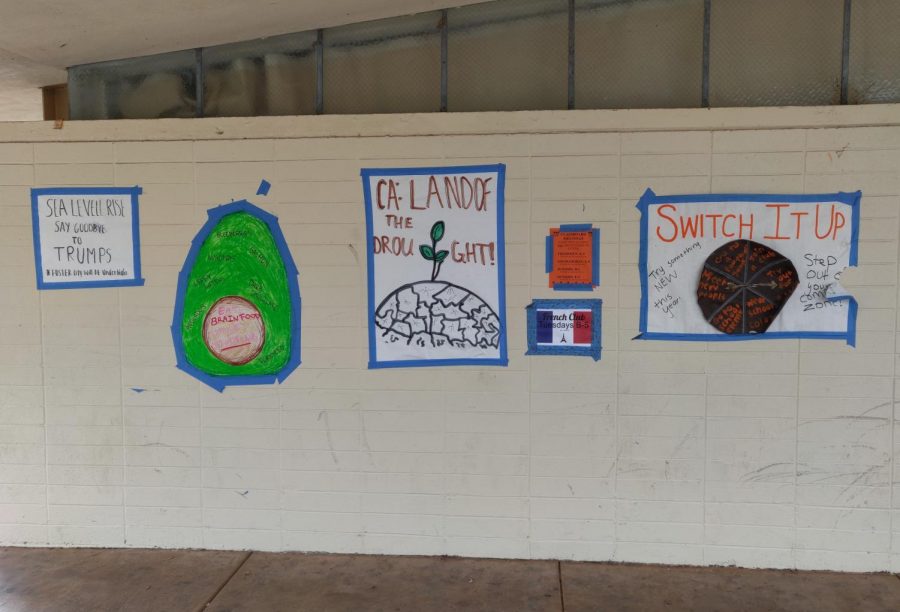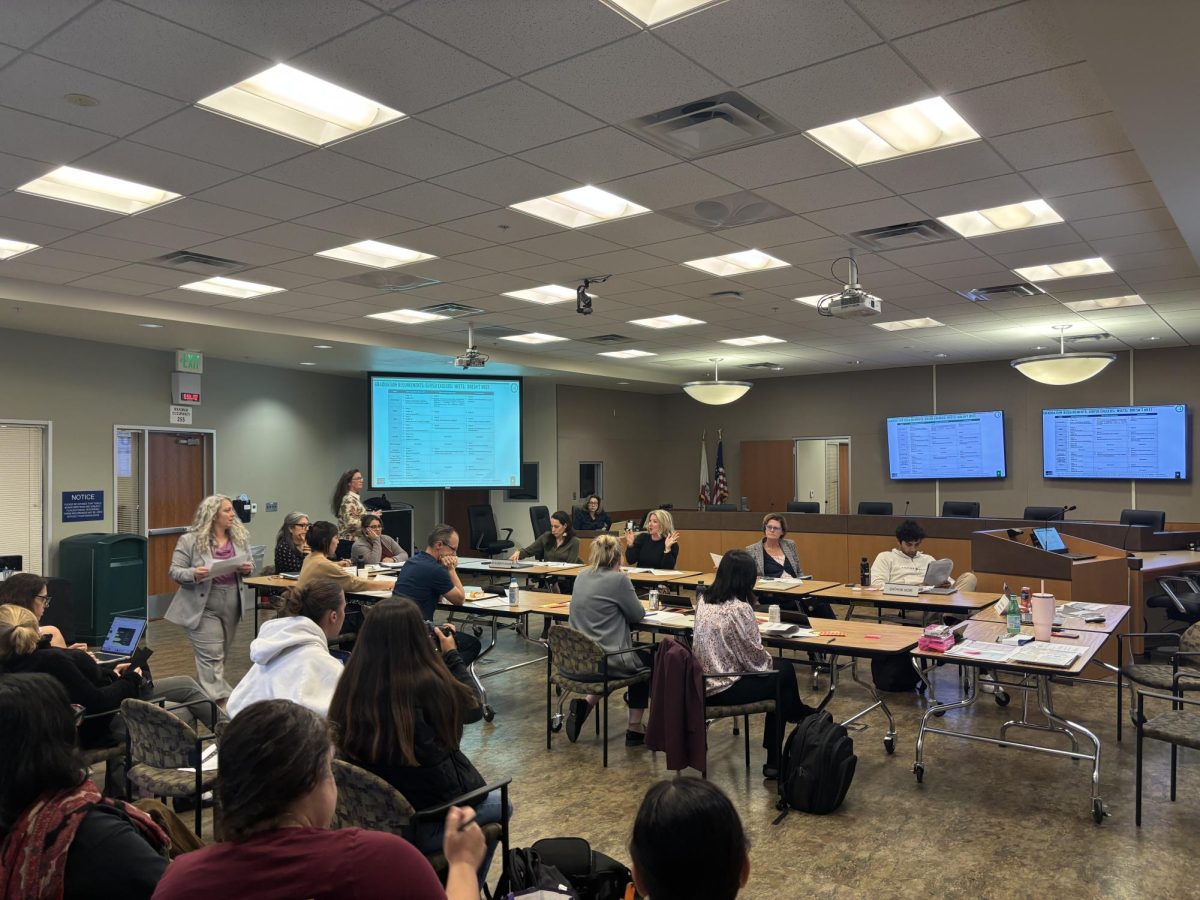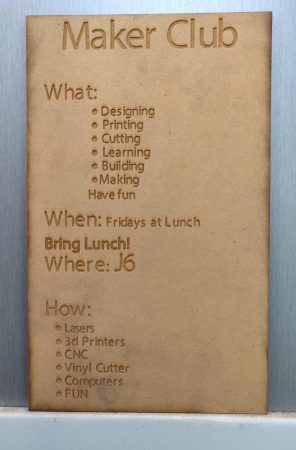
In my time at Woodside, I’ve stopped by my fair share of clubs. So, whenever I walk around campus and see posters advertising even more clubs, I wonder how Woodside’s clubs can coexist in such a competitive club economy. One day in November, I decided to research how many clubs are officially active at Woodside: there are 55. This extensive collection of clubs means that, even if all of Woodside’s clubs were split evenly across the five-day school week, there would be 11 clubs happening at the same time every lunch. While clubs like Tree Hugger’s Club and Octagon Club manage to thrive, how can the other clubs compete for members? With newfound curiosity, I reached out to club advisers and club members for interviews. Specifically, I asked for clubs that were “under-attended or underappreciated.”
Over the course of a few weeks, I learned about four clubs (Portuguese Club, Lunch Club, French Club, and SSA). While I began my journey skeptical of Woodside’s clubs, I eventually realized that they make up some of Woodside’s kindest communities in addition to being incredibly motivated to change Woodside for the better.
My first interview with Wilde, who had participated in and quit a handful of clubs, provided the initial source for my doubt.
“Even though I went to Star of David [Club] – which always has like 20 people – you do a Kahoot about Hanukkah and eat lunch instead of, ‘Let’s do a fundraiser for something Jewish-related,’” said Wilde. “I think that’s a lot of the clubs though; it’s just where people eat lunch. There’s no really big projects… That’s why I like Lunch Club; you just eat lunch.”
Wilde’s interview painted a somewhat pessimistic view of the club culture at Woodside. Having left Portuguese Club after his friends stopped going (and no longer going to Debate Club for reasons that would later come to light), he seemed to view the goals clubs try to reach as futile and misguided.
“For Portuguese Club, though, [the club adviser]… tried to convince some of the people to go on this educational tour of South America,” said Wilde. “I was already going on vacation, so I couldn’t afford it.”
After learning about the possible negatives of Woodside’s clubs, I decided to investigate their positives. Since Wilde mentioned Lunch Club, I reached out to Woodside seniors and Lunch Club members Maxwell King and Ronan Morrill for comment.
“The [Lunch] Club’s official mission statement is to define and redefine what it means to have lunch,” said King. “I think we show this with our practices: we bring in different cultural dishes to the club, and we have presentations.”
Soon, King and Morrill got on the topic of Lunch Club’s playful feuds.
“Connor Herson just founded The [Yogurt] Club, and we have a friendly back-and-forth battle,” said King. “When you go to Yogurt Club, you’re confined to the restraints of defining yogurt, but Lunch Club encompasses yogurt and much more.”
Despite the strong sense of community King described, Morrill brought up the fact that Lunch Club could benefit from an increase in size.
“I think Lunch Club gets a lot of bad press,” said Morrill. “On the announcements, the room is wrong, so I think that could be a factor.”
At the time, Woodside’s announcements had listed the room as B-11, although I made sure this was fixed shortly after the interview.
“It’s in F-1,” added Morrill. “So spread the word.”
Leaving this interview, I had a much more upbeat impression of Woodside’s clubs. However, I was still pondering one thing: a “lunch bench” that Morrill had mentioned in a short aside. I had no idea what it was, and I soon found out I had good reason to be uninformed.
In an email, Morrill stated, “The Lunch Bench was a Lunch Club initiative to provide new benches for the school through fundraising. However, we cancelled the project after the school’s addition of new seating to the quad. The Lunch Bench was a topic of great controversy in the 2019 Lunch Elections.”
In a follow-up, Morrill wrote, “As a democracy, The Lunch Club is run for and by the people. There are many ideas about how the club should be run, and elections help us to decide officers who will make decisions on controversial issues. Despite the incident, Max King has been president for a long time.”
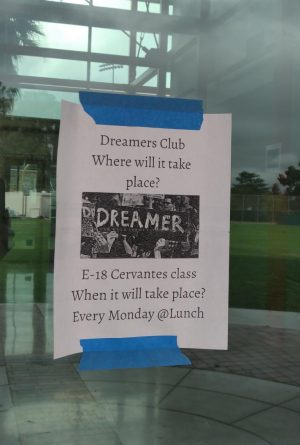
To keep with the common theme of eating food, I attended a French Club meeting. While the Woodside halls outside were cold and wet with rain (and the weather was even more gloomy than what’s expected from winter in California), the inside of B-5 was warm and welcoming. I spoke to Woodside junior Grace Jau first.
“I just started joining French Club this year,” said Jau. “We try a lot of French food, and we try to get exposed to French culture. We watch videos of people answering everyday questions in French so we can see… what the difference in culture is: what their everyday lives are like, what things they eat, what things they like to listen to, what they do to celebrate holidays.”
When asked about that day’s meeting, Jau said, “Today we’re having a Thanksgiving special potluck, so everyone brings something. It doesn’t have to be French because I think French Club – even more so for me than the culture – is just [about] getting to know people in the school who you may not see otherwise.”
Jau’s statement rang true. Despite French Club’s small size (there were seven people present that day, but most days four or five people come), every one of its members chatted with each other by a table of snacks about topics ranging from French culture to bilingualism.
When asked about the club’s relatively low attendance, French teacher and French Club adviser Gay Buckland-Murray said, “It has to do with students going to other clubs on Tuesday.”
“It’s kind of like parent volunteers at a grammar school,” she added. “You want all parents to volunteer, but it usually ends up being the same ten or so. If you have multiple events, some events aren’t going to succeed because those parents are already stretched too thin, and I kind of feel like the same is true of our students.”
To get the opinion of another club that holds its meetings on Tuesdays, I met with Safe Student Ambassadors (SSA) in H-4 a week later.
“When I first started, I viewed [SSA’s goal] as to better Woodside’s campus and then, ultimately, the area where we live,” said Woodside junior Noah Maltzman.
Excitedly, he moved onto the events SSA had planned for the remainder of the year.
“There is a training that will happen,” said Maltzman. “It’s a two-day training where you learn about different types of bullying and how to help out the victims of those different types… Later in the year, in May, there is an event for all Redwood City elementary public schools where they come to Red Morton. We as the SSA officers will go to Red Morton and teach them about healthy lifestyles, which include eating right, no smoking at all, and a lot of exercise. We help teach them in a fun way: we dress up in these costumes… Honestly, it’s a blast every year, and I can’t wait to do it again.”
He offered to show me pictures of the costumes and later direct messaged me images of his friends and him in plant costumes over Instagram.
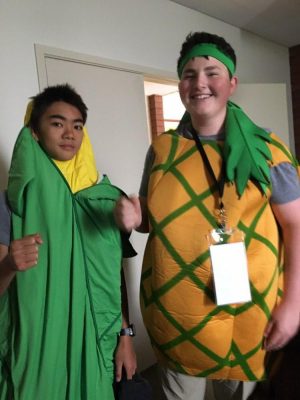
Afterward, Maltzman took a moment to get personal.
“[In the] summer of seventh grade, I had just moved to California,” said Maltzman. “It was very cliquish – I went to a small private school, so everybody knew everybody – and I was kind of the outsider… I’ve seen that hurtful nature that people can have, so, when I came to Woodside, I wanted to make sure that nobody else would have to deal with that.”
Once I finished all of my interviews, I reflected on what I had learned. Out of 55 clubs, only a handful reached out when I asked to speak to clubs that were “under-attended or underappreciated,” and, in interviews, subjects were always a little stumped on questions about if and why their clubs didn’t have enough people. Through my research, I have come to believe this: there is nothing “wrong” with any of these clubs. Every single club member I talked to seemed satisfied and proud of the clubs that they are a part of. Every club member also gave incredibly detailed answers about the variety of goals that they were working towards. If I left the experience of doing these interviews with anything, it was a desire to join more clubs. They’re already doing great work, and they can only improve with more participants.


